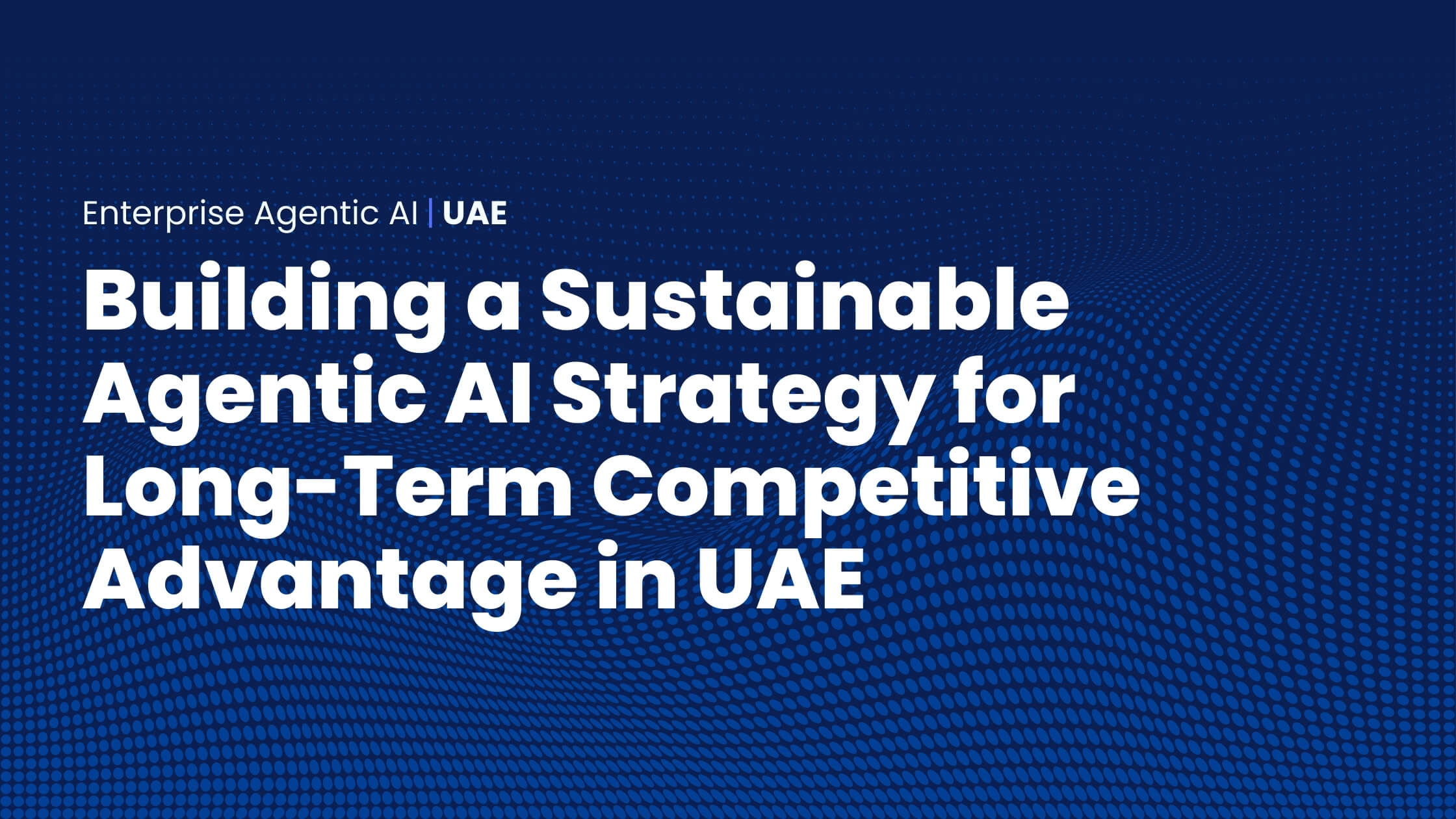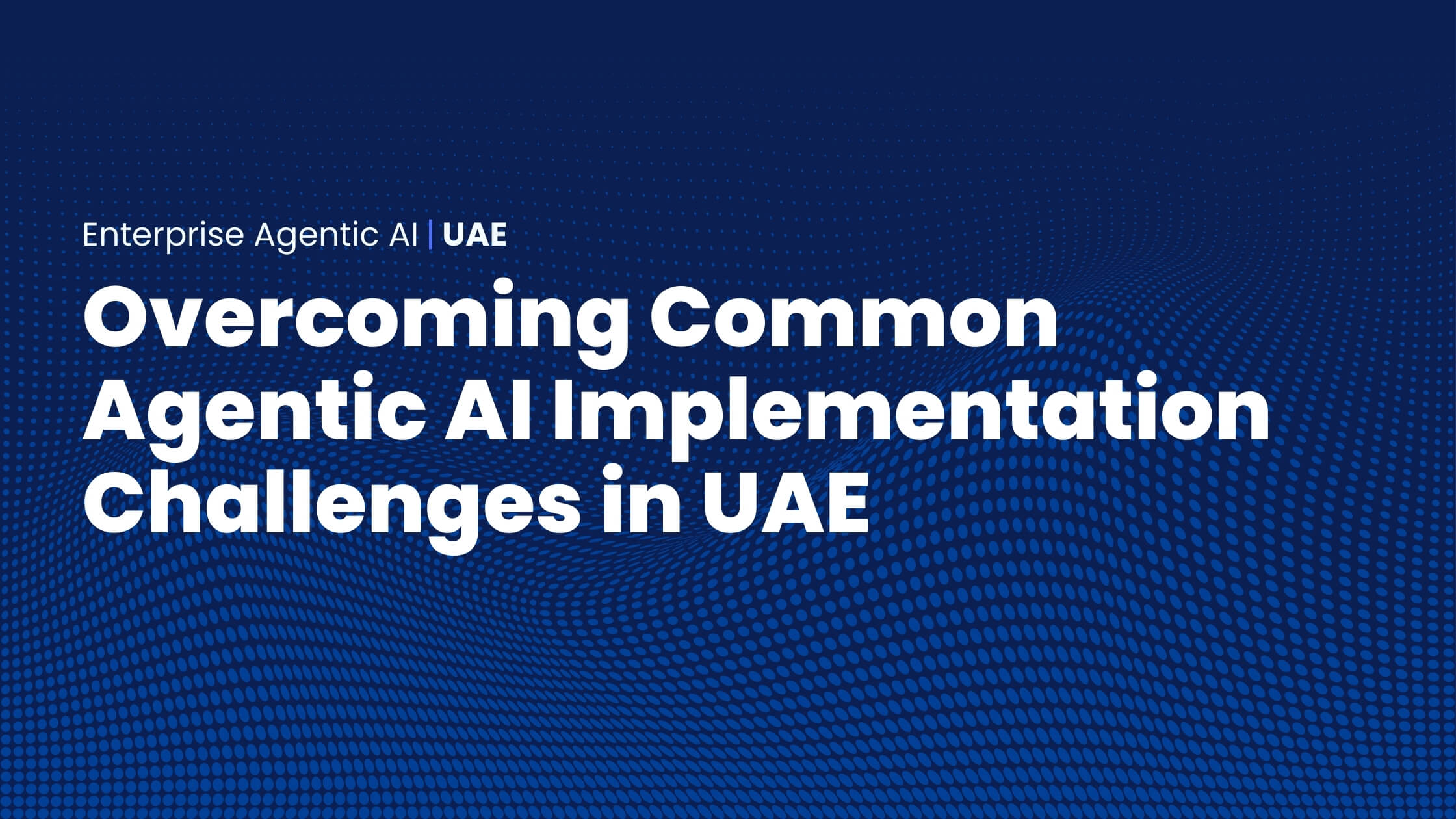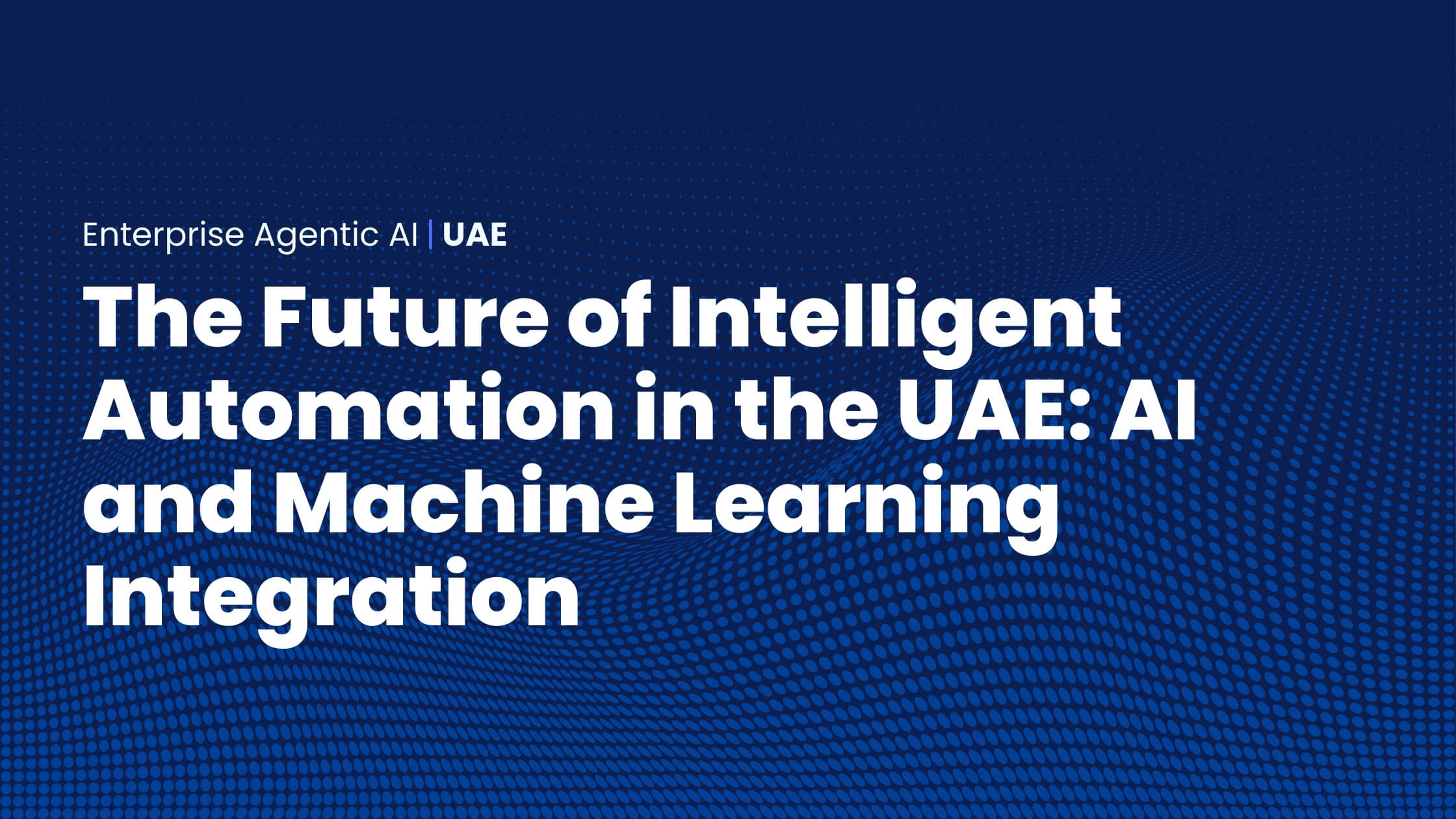December 24, 2025
Building a Sustainable Agentic AI Strategy for Long-Term Competitive Advantage in the UAEIf you’re not “doing AI” then it’s happening to you.
Whether you're building cutting-edge AI or still figuring out what "generative AI" means, Artificial Intelligence is already shaping your business, and it's doing so at an astonishing pace. The time for “wait and see” is over. If you're not actively "doing AI governance," then AI is happening to you.
McKinsey's latest "State of AI" report paints a vivid picture: 72% of organisations have now adopted AI in at least one function, a substantial leap from just 50% in 2021. Even more compelling, generative AI deployment is skyrocketing, with companies reporting significant use across diverse business areas. The writing is on the wall: AI isn't just for tech giants anymore; it's the invisible hand shaping everything from your hiring process to your competitor's market strategy.
So why is this the case?
Think your business is an AI-free zone? Think again. AI is now deeply embedded in the very fabric of the modern business ecosystem, often in ways you might not realise:
The Software You Already Use is Smartening Up: Major enterprise platforms like SAP and Salesforce are no longer just passive tools, they are infused with AI, powering everything from automated recommendations to predictive analytics. Imagine a hiring decision influenced by an algorithm, or a financial forecast driven by unseen AI. These are not futuristic scenarios; they are happening now.
Your Supply Chain's Secret Weapon (or Weakness): Your suppliers are not operating in a vacuum. A recent Deloitte survey revealed that over 60% of companies are leveraging AI in their supply chain operations to improve efficiency and resilience. If their AI systems introduce bias, privacy concerns, or operational vulnerabilities, those risks become yourrisks. A single weak link can trigger a catastrophic ripple effect, impacting your operational resilience and reputation.
The Competitors Breathing Down Your Neck: While you contemplate AI, your rivals are already weaponizing it. They are using AI to accelerate innovation, personalise customer experiences (boosting customer lifetime value by an estimated 15-20%), and streamline operations, achieving efficiencies that can translate to significant cost savings - some reports indicate up to 30% reduction in certain operational costs. Ignoring their AI advantage can cost you dearly.
The Rise of "Shadow AI" Among Your Own Ranks: Your employees, ever resourceful, are already embracing AI tools like ChatGPT, advanced analytics platforms, and AI-powered assistants to boost productivity. A recent study found that over 80% of employees who use generative AI tools do so without official company oversight. This "Shadow AI" creates a massive blind spot, introducing unknown risks related to data security, intellectual property, and compliance, often outside the purview of IT or governance teams.
AI governance is not just about controlling the AI you build. It’s about managing the risks and responsibilities that come from AI systems, wherever they originate. The risks are far-reaching:
The good news? Proactive AI governance isn't a burden; it's a strategic imperative that transforms uncertainty into trust and risk into unprecedented opportunity. By establishing clear policies, oversight, and ethical guidelines, including third-party or supplier AI, you can:
While AI governance is a broad and evolving landscape, your initial approach should focus on these critical elements:
The journey to comprehensive AI governance has already begun, and the clock is ticking. The good news? That same McKinsey survey found a powerful correlation: CEO oversight of AI governance is the element most closely tied to a positive bottom-line impact from an organization's generative AI use. This isn't just about compliance; it's about competitive advantage and financial returns.
AI governance is no longer a niche concern for tech companies. It's a fundamental requirement for every organisation navigating the modern business landscape. As AI becomes embedded in the fabric of business, every organisation must proactively manage the risks, embrace their responsibilities, and seize the opportunities it brings - because AI will impact you, whether you’re ready or not

Stay Informed: Engage with our Blog for Expert Analysis, Industry Updates, and Insider Perspectives



let’s design the governance framework your AI strategy deserves
.webp)
.webp) Let's Talk
Let's Talk